News & Events in Belarus
Belarus president okays new approaches to mending ailing agricultural enterprises
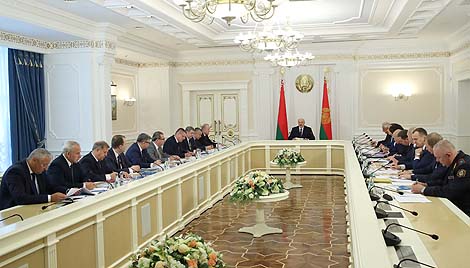
MINSK, 20 July (BelTA) – Belarus President Alexander Lukashenko has backed the government-sponsored approaches to introducing a new scheme to financially rehabilitate ailing agricultural enterprises, BelTA learned from Deputy Prime Minister Mikhail Rusy after the government conference on 20 July.
Mikhail Rusy said: “The head of state has backed the proposals developed by municipal government agencies, central government agencies, and judicial authorities. The relevant draft presidential decree will be adjusted within a very short period of time. We will give a good choice of instruments for recovering ineffective enterprises to municipal government agencies, commercial entities, and investors. It is a way to wisely follow a strategy and strike deals with creditors without additional expenses in order to create effective assets, which will start earning money and settling accounts. Restructuring and the prolongation of amicable agreements will be used instead. Writing off [funds] is out of the question.”
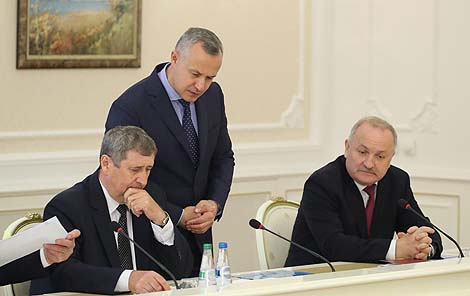 The head of state also demanded that the core business of ailing companies must be preserved as well as people’s jobs. Social commitments must be honored, too.
The head of state also demanded that the core business of ailing companies must be preserved as well as people’s jobs. Social commitments must be honored, too.
BelTA reported earlier that the government conference held by Belarus President Alexander Lukashenko on 20 July focused on a draft presidential decree designed to allow agricultural enterprises to go through special financial rehabilitation procedures without the assistance of courts.
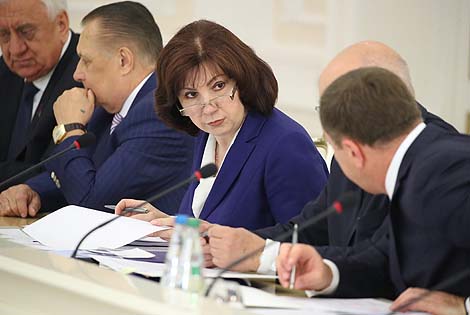 The draft presidential decree stipulates a number of ways to financially rehabilitate agricultural enterprises suffering from steady insolvency.
The draft presidential decree stipulates a number of ways to financially rehabilitate agricultural enterprises suffering from steady insolvency.
As an option creditors will be offered the restructuring of financial liabilities by issuing more shares of the agricultural enterprise to cover the amounts owed to the creditors and giving the shares to the creditors (on terms of Belarus president decree No.88 for banks and the state budget). As an option a three-year respite can be granted followed by a five-year instalment plan, provided current payments are performed (up to 3 and up to 5 years for banks respectively). The ailing agricultural enterprise can also sign an agreement with creditors to change the ways of honoring monetary commitments (an amicable agreement). Oblast administrations and district administrations may issue securities to transfer the debts to municipal government agencies. The head of state may also decide to transfer the debts to OAO Assets Management Agency.
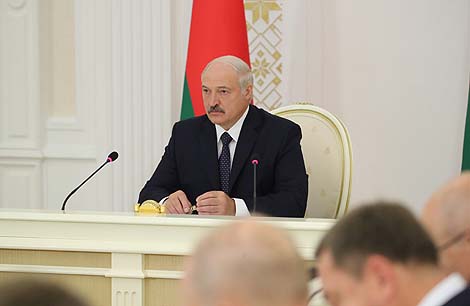 If the agricultural enterprise fails to come to terms with its creditors and if a productive business plan is available, a three-year respite will be authorized followed by a five-year instalment plan. If there is no productive business plan, the oblast administration will have to shut down the enterprise and send the case to courts following the established procedure.
If the agricultural enterprise fails to come to terms with its creditors and if a productive business plan is available, a three-year respite will be authorized followed by a five-year instalment plan. If there is no productive business plan, the oblast administration will have to shut down the enterprise and send the case to courts following the established procedure.
Apart from that, for the duration of the financial rehabilitation period (eight years similarly to the reorganization procedure) interest charges, forfeit penalties, and other kinds of penalties are suspended except for interest charges owed to banks and OAO Assets Management Agency. Banks may reduce the effective interest rate down to 1.5%.
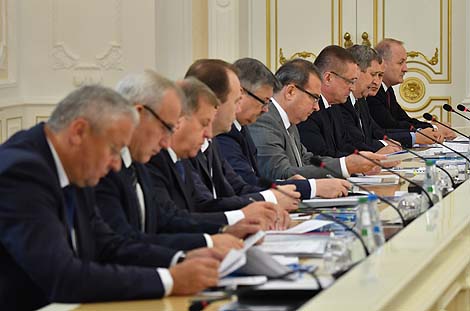 If the debts of the ailing agricultural enterprise are converted into shares, creditors may transfer the shares to the district administration for trust management or may hand them over to the authorities for free.
If the debts of the ailing agricultural enterprise are converted into shares, creditors may transfer the shares to the district administration for trust management or may hand them over to the authorities for free.
To allow converting debts into shares, the draft decree allows converting unitary enterprises into commercial entities using a simplified procedure.
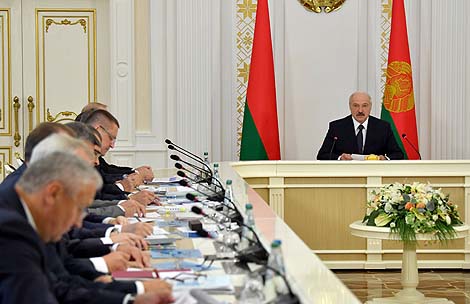 There are also plans to introduce instruments to enable anticrisis management and improve the effectiveness of management of insolvent agricultural enterprises. For instance, the person in charge of running the agricultural enterprise may be promised 25% plus one share after the business plan is implemented, provided the agricultural enterprise recovers. “It is the right thing to do. It is a stimulating factor,” believes Mikhail Rusy. “One would have to work very hard for about five years. The country can only benefit if we find a good manager, stimulate him, and he will generate proceeds in return.”
There are also plans to introduce instruments to enable anticrisis management and improve the effectiveness of management of insolvent agricultural enterprises. For instance, the person in charge of running the agricultural enterprise may be promised 25% plus one share after the business plan is implemented, provided the agricultural enterprise recovers. “It is the right thing to do. It is a stimulating factor,” believes Mikhail Rusy. “One would have to work very hard for about five years. The country can only benefit if we find a good manager, stimulate him, and he will generate proceeds in return.”
Investors may sell or rent properties and assets of the ailing agricultural enterprise without the state registration of the enterprise. Investors will also be able to manage some assets of the enterprise without title-establishing documents. The buyer will be able to make such documents within one year after the deal is sealed. Investors will be able to hand over housing, social facilities, and engineering infrastructure of the ailing agricultural enterprise to municipal government agencies without title-establishing documents and technical inventorying in order to get rid of assets lying outside the core business of the ailing agricultural enterprise.
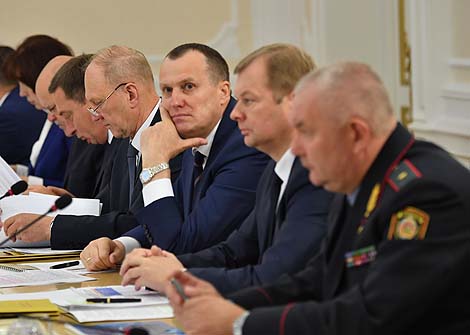 Lessees or trust managers will be able to fire the executive, his or her deputies, and the chief accountant within three months to install new management. Employment contracts with other workers will not be terminated.
Lessees or trust managers will be able to fire the executive, his or her deputies, and the chief accountant within three months to install new management. Employment contracts with other workers will not be terminated.
The heads of district administrations will have to work with executives of insolvent enterprises to put together and implement an effective business plan using possible pretrial rehabilitation procedures.
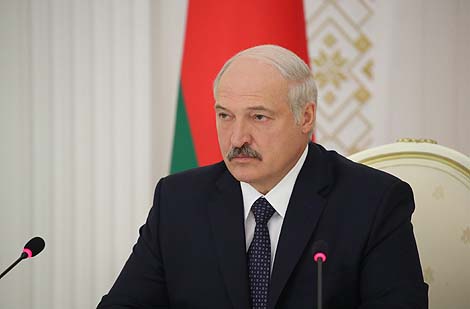 At present the financial rehabilitation of agricultural enterprises follows presidential decree No.253 of 4 July 2016. The decree applies to agricultural enterprises, which were insolvent or regularly insolvent as of 1 July 2016. As many as 323 agricultural enterprises (there is a total of 1,300 agricultural enterprises in Belarus) have been submitted to pretrial rehabilitation procedures in line with resolutions of the central government. As many as 283 agricultural enterprises are going through the process now (40 enterprises are no longer around because they have been merged, or sold, or given away). As many as 283 enterprises continue implementing business plans, seeking investors, and restructuring financial liabilities.
At present the financial rehabilitation of agricultural enterprises follows presidential decree No.253 of 4 July 2016. The decree applies to agricultural enterprises, which were insolvent or regularly insolvent as of 1 July 2016. As many as 323 agricultural enterprises (there is a total of 1,300 agricultural enterprises in Belarus) have been submitted to pretrial rehabilitation procedures in line with resolutions of the central government. As many as 283 agricultural enterprises are going through the process now (40 enterprises are no longer around because they have been merged, or sold, or given away). As many as 283 enterprises continue implementing business plans, seeking investors, and restructuring financial liabilities.







 print version
print version make home page
make home page add to bookmarks
add to bookmarks

